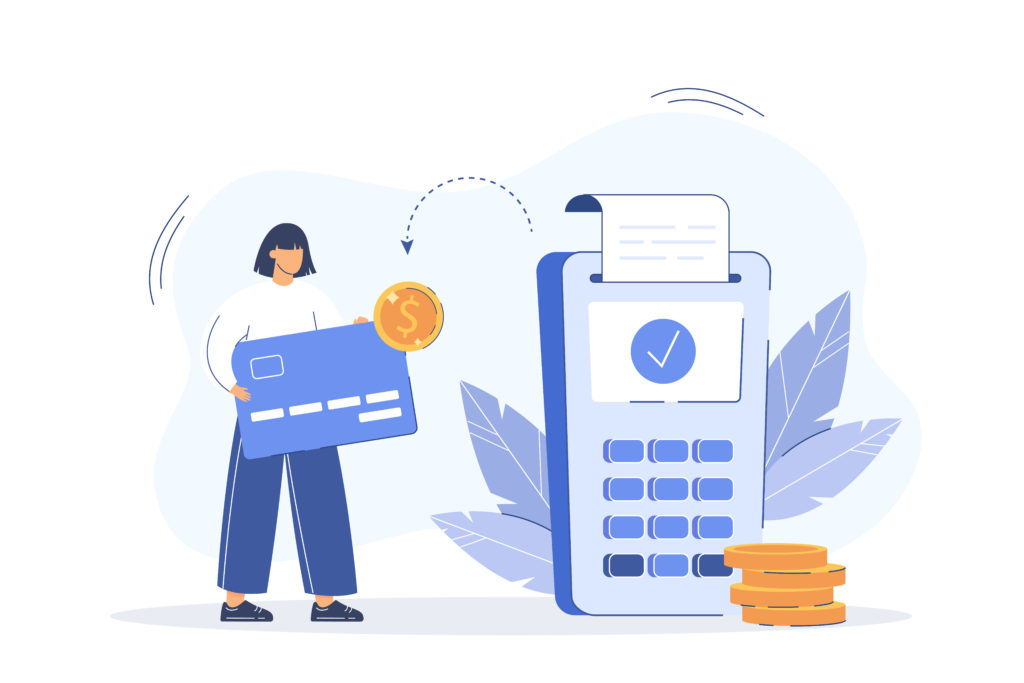
Today, Point-of-sale (POS) systems are evolving, giving businesses more flexibility, control, and intelligence than ever before. POS provides so much more than just simply taking account of the sales of the day or organizing bills into sections.
Traditional cash registers and stationary credit card readers have given way to tablet and cloud-based POS systems.
This technological shift not only provides businesses with new features but also allows businesses to keep all reports and transactions in one place.
POS is a connected ecosystem that, when combined, allows you to efficiently process customer-facing transactions and streamline business processes related to sales.
Why do retailers need one?
Modern POS systems provide far more functionality than just transaction administration. They can carry out other business functions and contribute to important business decisions, such as:
- Centralizing your inventory management
- Collecting and visualizing sales data in real-time
- Building in-depth customer profiles
- Accepting payments anywhere
- Improving in-store sales
- Opening new stores faster
- Adapting to changing business needs
A retail POS system is an important software tool that acts as the central hub for your retail operation.
Retail POS systems collect and analyze data to help inform purchasing and staffing decisions, manage employees and inventory, and build your customer base through loyalty and marketing efforts, in addition to processing sales.
At Shopfront Solutions, we’ll help you find a solution to your in-store ticketing and retail communications easily and efficiently.
Different types of POS systems

These are the most common types of POS systems:
Terminal
The most common type of POS is a terminal POS system, which is designed to allow business employees to record revenue earned and products sold. The terminal is the display on which an employee enters data into the POS software.
A barcode scanner, cash drawer, receipt printer, and customer-facing display with a card reader are examples of additional hardware components.
Terminal POS systems can be used by full-service restaurants, grocery stores, boutiques, book or magazine stores, salons, spas, and electronics stores.
Mobile
POS services for smartphones and tablets can process payments as well as manage inventory and customer information.
The app is usually free in exchange for payment processing. The best payment processors will provide you with a free credit card reader. This is a good POS option if you don’t have a large inventory and need to be mobile.
Most will work with a portable receipt printer, or you can email receipts directly from the app to your customers.
Ice cream shops, fast food trucks, juice bars, farmer’s market stalls, street vendors, freelance or contract workers, contracted professional services, music merchandise vendors, mobile services, and farmer’s market vendors benefit the most from mobile POS.
Open Source
You can customize your POS software interface to function exactly how you want with open-source POS systems.
This software is frequently more limited than paid software. Some open-source POS options will work with hardware such as printers, barcode scanners, and others, while others are designed to work with your smartphone.
This system is best for large or enterprise-sized businesses.
Multichannel
A multichannel POS is a system that enables a company to interact with customers via multiple channels, most commonly a website, a physical location, and third-party marketplaces such as Amazon or eBay.
Multichannel POS is ideal for an eCommerce store that is opening at a physical location, or for a physical store that is accepting online orders or developing a website to increase its online presence.
This type of POS system can benefit brick-and-mortar stores that also sell online, eCommerce companies expanding into physical spaces, and online sellers doing in-person pop-ups the most.
Cloud-based
A cloud-based POS system is entirely hosted online, with no need to download software to use it.
It’s best for smaller businesses that don’t want to overextend their budgets with large upfront costs, though one disadvantage is that service may be disrupted if the internet goes down.
Self-service kiosk
A self-service kiosk may be used at a POS, allowing customers to scan and pay for their own products. A kiosk, like a terminal, will typically include a display, card reader, receipt printer, and barcode scanner to assist customers in checking out.
The majority of kiosk POS systems are purpose-specific solutions.
For example, you could provide a self-service kiosk where customers can buy movie tickets or manage parking space time and payments.
This would be most appropriate for ticket sales, transportation passes, patient check-ins, grocers, product lookup, HR, and parking.
Online point-of-sale system
An online POS is a software-based POS system that can be accessed via the internet and is intended to use minimal hardware.
This web-based service is typically available for a monthly fee and allows a store manager to run it from their used desktop or laptop computer.
And because the hardware isn’t designed for quick use, an online POS is best for a store with a low volume of sales — small retail stores and coffee shops, art galleries, veterinarians, or consignment stores.
Tablet
POS software can run on tablets just as easily as it can on smartphones, and some systems are specifically designed for the larger space of a tablet.
iPad and Android point-of-sale solutions are becoming increasingly popular because they require little upfront investment and can frequently be used with a tablet that you already own.
Many are compatible with hardware such as barcode readers, cash drawers, and tablet stands. Some applications are quite simple, while others can manage complex inventory situations and track employee time.
Tablet POS systems are ideal for coffee shops, pizzerias, and small retail stores such as gift shops.
Bottom line
With an infinite number of options, specifications, and reviews to evaluate, deciding on a POS might be intimidating. Finding the perfect POS system involves extensive research and consideration, but the payoff is well worth it. Begin by examining your existing needs, and then consider the future.
Contact Shopfront Solutions and we’ll assist you in locating the ideal POS system for your company’s needs.